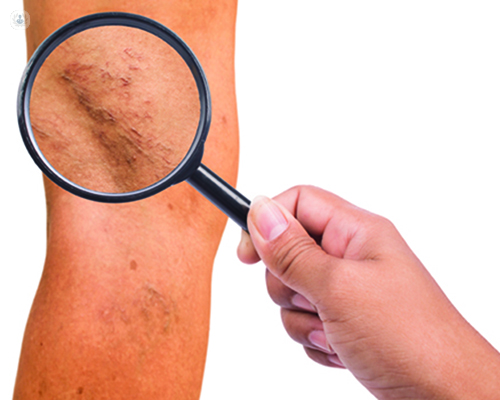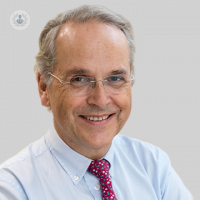Varicose veins treatment: a new surgical approach
Written by:In recent years, there has been a considerable change in surgical practice in the field of varicose veins surgery. The basis of treatment used to be varicose veins stripping in which the diseased veins were removed in their entirety. These treatments were performed under general anaesthesia and led to significant post-operative pain and a recovery period of about one month.
We speak one of London's leading vascular surgeons Mr Philip Coleridge Smith all about what these beneficial changes mean for patients who want varicose veins surgery.

What are the new approaches to varicose veins treatment?
Thermal ablation
In recent years, new methods of treatment have been introduced which are performed under local anaesthesia. The veins may be successfully destroyed by thermal ablation (heating) methods, where a tube is passed along the diseased vein for a distance of 20 – 50 cm.
The tube contains either a laser fibre optic, an electrically heated catheter or a tube delivering super-heated steam. Local anaesthetic is applied to the vein, and the heat is used to destroy it without removing it. Side effects are mild, and complications are rarely experienced. This procedure also helps to alleviate related symptoms such as swelling, aching, and irritation caused by varicose veins.
Ultrasound guided foam sclerotherapy
An improved method of injecting varicose veins known as ultrasound guided foam sclerotherapy has become popular. In this method, injections of foam are made into the diseased saphenous veins and associated varices under ultrasound guidance. The vein then hardens and is eventually blocked. The term ‘sclerotherapy’ comes from the Greek word ‘sclero’, which means ‘to make hard’.
Local anaesthesia is not required for this treatment. The treatment is quick and can be performed as a day case walk-in procedure, meaning there is no overnight stay in hospital required. Each session of treatment lasts about half an hour. This method is much safer than traditional surgery, improves the appearance of the veins, and is more comfortable for the patient, which explains why it is a popular choice for surgeons these days.
It is suitable for patients with small or moderate size varicose veins, and patients who have had previous surgery to veins can still be treated using foam sclerotherapy.
How effective are these treatments?
These treatments are both equally effective - neither stands out from the other in particular, and the treatments are comparable to the ability of surgery to treat varicose veins. The main difference compared with the previous methods is that these treatments have a greatly reduced post-operative recovery time, with most patients experiencing little post-treatment discomfort.
Return to work is usually within 1 to 3 days, in contrast to a much longer period of recovery following traditional varicose veins surgery. Modern methods of treatment allow varicose veins treatment to be done swiftly, effectively and with little discomfort for the patient.
If you're considering gold standard varicose veins surgery, arrange an appointment with Mr Coleridge Smith via his Top Doctors profile.


